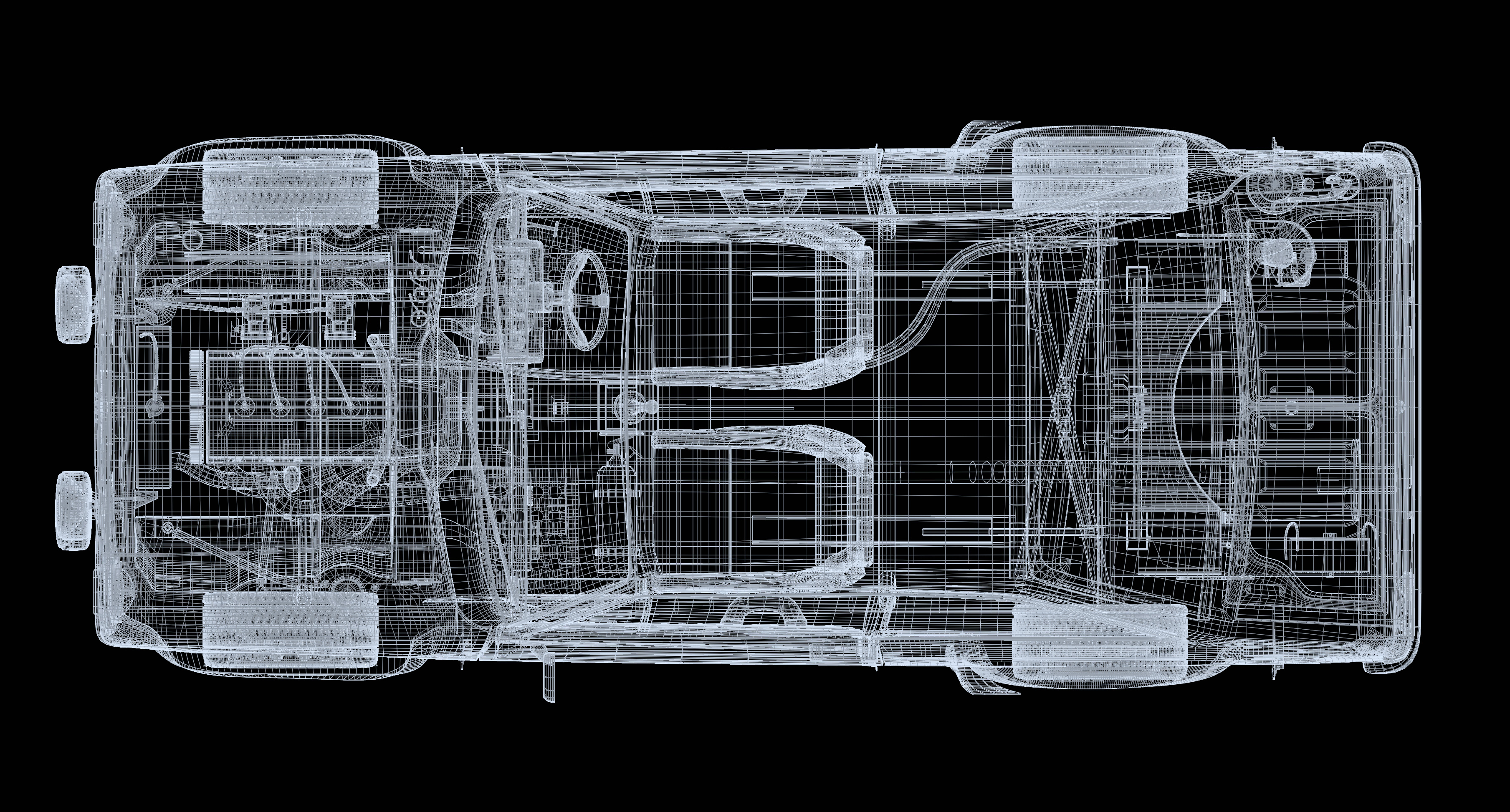Peter Gentsch on AI in Project Motor Racing and Game Changers that Change Gaming

Peter Gentsch is a German academic, researcher, author, management consultant, and entrepreneur specialising in digital management and data science. He sat down with Straight4 to talk about how technologies like ChatGPT and Midjourney are leveraging the gaming industry for both incredible potential as well as demanding challenges …
I guess the first question is the obvious one: Will our industry soon be able to create an accurate physics model by simply asking our AI co-driver to go off and read all the textbooks and all the scientific papers related to tyre curves and physics models?
PG: I’d rather start by just briefly touching on a more general perspective that AI in the gaming industry is not that new. So, if we apply AI, for example, to calculate driver physics, as you mentioned, that’s not new in a traditional way—but the new thing is this kind of generative AI around foundation models. That brings AI to the next level because it’s not just analysing things and then trying to simulate things, it really becomes a production innovation factor because it generates things synthetically but very, very powerfully. This generative AI then has a massive impact on two things.

One is the production you’re talking about, for instance, how to produce games, you understand? And the other thing is also, how this impacts the games themselves. Your question is referring to, “Okay, can we do that kind of simulation in a smarter way, more efficiently?” The answer is yes, it can reduce costs and it can make the process quicker, and that’s important because when it comes to gaming, it’s about time to market.
But the real impact is when we’re not only trying to leverage AI to change how we create games and how we do simulation, but more about how this can change the nature of the games themselves. Coming up with new features, for instance, and completely new ideas. The question then is not just, you know, can we do simulation, it’s more, can we do that in a smarter way?

So essentially, you could train the model—a large language model—and put all the information we have about races, cars, tracks, whatever, and then challenge the model to come up with some kind of simulation that works to a certain degree. Sure, no problem. But what’s important, you know, is that you must adapt this kind of generative AI, you have to know about physics because generally this kind of large language model is fairly general. They do not have the specific knowledge of how to create games or how to drive simulation. So what I’m trying to say is, you need to train the AI to adapt these models, and at that point, I would say that yes, it’s a new way to do that kind of simulation—production, software coding, and so on.
But I wouldn’t say it’s just, you know, 100 percent automation. It’s more like a co-pilot—a digital system helping you to produce games in a smarter, faster way. It’s not just “press the button” and then you have this kind of simulation, but it does bring us to the next level because the level of automation increases, and you can prototype very easily and that makes it much more efficient to produce games.
But I think the more interesting part is how can we use generative AI to come up with a completely new kind of game.

I’m very familiar with AI in other industries and we usually use AI when it comes to production on the first stage of ideation—you know, to come up with new ideas, what are the trends, what are customers looking for—and come up with new features.
I was deeply impressed, I must say, with your AI engineer in Project Motor Racing. I’m playing the sim and now I’m able to talk to some artificial person, but it doesn’t feel artificial, it feels as if I’m talking to a real person, and then you have somebody that comments on the race as well, so that gives you a completely new and deeply engaging experience.
I think this new feature is really a new experience. You’re not alone sitting in the car driving around, you can talk to somebody, and I think that’s amazing. And by the way, it’s not just, you know, some fancy gimmick. I think it’s important because it’s not too easy to drive—I think these games are very challenging for new users—so the AI engineer can give you some guidance, some training, some education.
But this is just the start of where this can lead to. Now we’re talking about text-to-voice or voice-to-text, but it could also be creating new 3D assets. It could be text-to-visual, to image, to whatever. I think there’s so many ways you can apply this new way of generative AI in games: it’s about sound, and about music, it’s multimodal, it’s not just voice, it’s sound, it’s video, and that’s why generative AI is so powerful.
.png)
Is this the reason why you were attracted to Straight4?
You know, I’m familiar with how to train, adapt and use generative AI in various industries such as insurance, finance, and retail. I’m very much focusing on that and just wondering, Okay, the games industry, it’s very much ahead and advanced and of course AI is in place but I think they do not really explore the full potential of generative AI. And what’s interesting is that, of all the entertainment industries, games will be most impacted by generative AI, but it’s also the most challenging because gaming is about complexity, it’s about real time compared maybe to animated movies, live action movies, etcetera.
But with games, if you combine the real time requirement and the complexity, generative AI can help a lot. The flip side is, it’s so demanding when it comes to computing power and that’s exactly why I’m so fascinated to apply this technology, which I’m very familiar with, to a completely new field. And I think the potential is much bigger compared to finance or to retail because it’s all about the creation experience.
You know, it’s so much about content, images, 3D assets, about sound, and that’s the very strength of generative AI. All these perspectives are affected by the game industry. Gaming and generative AI are a perfect match in many ways.
.png)
But again, it’s also a very challenging task because, when I use a large language model in different industries, it’s not real time. The requirement to create in real time—for example, an AI engineer—it’s much more complex. It’s going to have a huge impact, but that’s also why is so challenging.
If you run this generative AI in the cloud 24/7, for instance, it would cost insane money. I think there's some research that has to be done on how to apply large language models for the gaming industry, not just, you know, talk to an AI engineer, which is feasible today.
But if you go one step further and say, OK, we want to create, you know, tracks, we want to create maybe, in real time, characters or avatars, that that would be so engaging, and it's much more powerful compared to what’s being generated by other industries.
.png)
Which leads to the AI Hub …
Yeah, I think to exploit the real potential of generating AI for games, there are some questions that remain to be clarified. There’s some, you know, legal question when it comes to copyright, ethical stuff, also some technical issues such as, how can we run that on a cloud in a way that is viable on a commercial scale.
There are a lot of things to do and of course, there are a lot of, I would call isolated dedicated solutions and startups, but what’s really needed is some kind of foundation model for gaming and a particular foundation model for racing games.

Now you can maybe use Midjourney or you have some tools that help you to create 3D assets. But what’s needed—and that’s exactly what we want to achieve with the approach by the AI Hub that should be founded in the upcoming weeks—is to create all that in one platform where you can create, you know, maybe a new track, maybe AI assists, maybe you can use it to produce games more efficiently.
It’s a kind of middle layer for what you need to produce games. And I think it also would come to a democratization of the gaming industry. I would assume that you’ll have some kind of micro-AI studios or gaming studios, maybe just 2 or 3 people working there because, based on that platform, you know, it’s relatively easy to come up with games—maybe not that sophisticated games, but very easy to produce and to play games.

So what’s missing is a comprehensive approach, a platform that isn’t isolated, and to have all this in one platform for creating racing games or for coming up with new features.
There’s so much more that can be developed. I think there’s a lot of ideas out there on the market, but when it comes to gaming and the games industry, it’s not so easy to adapt and train large language models for racing games. And I think it could make sense if you are doing that, you know, because it’s about economies of scale, economies of scope.
It doesn’t make sense for a small studio to produce their own generative AI. But if they can refer or can use a service of an AI Hub providing all these tools and the power of generative AI, I think that could be a very good idea and that’s exactly what we are working on now right now.
In other industries, concepts for data sharing and AI hubs are also emerging and showing initial traction and success.
I am sure that the gaming industry in particular can benefit from this. I am very happy to be part of this exciting future and to be able to actively shape it with my knowledge and experience.







.png)


























